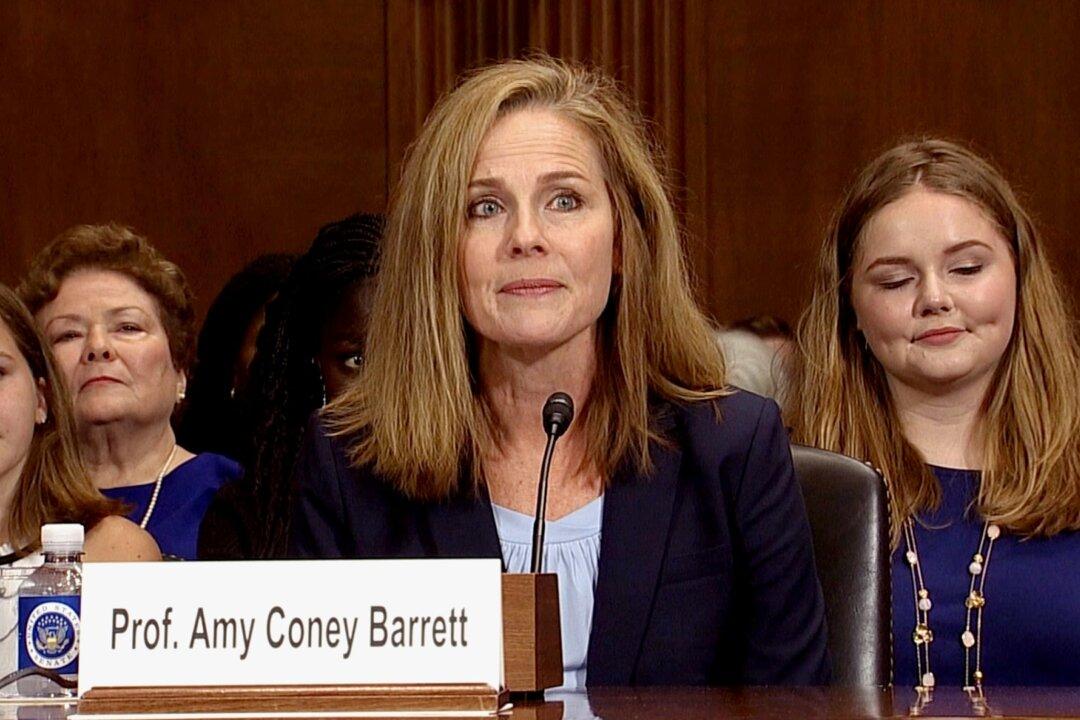In 2017, Supreme Court nominee Amy Coney Barrett was sharply questioned about her faith and personal views by Senate Judiciary Committee lawmakers who were deciding whether to confirm her as a circuit judge on the U.S. Court of Appeals for the 7th Circuit.
One of the exchanges, namely Sen. Diane Feinstein’s (D-Calif.) statement “the dogma lives loudly within you,” became so notorious that it continues to live on t-shirts and mugs. Feinstein’s line of questioning and comment aimed at getting to the bottom of whether Barrett was able to separate her religious views from her legal opinions.




